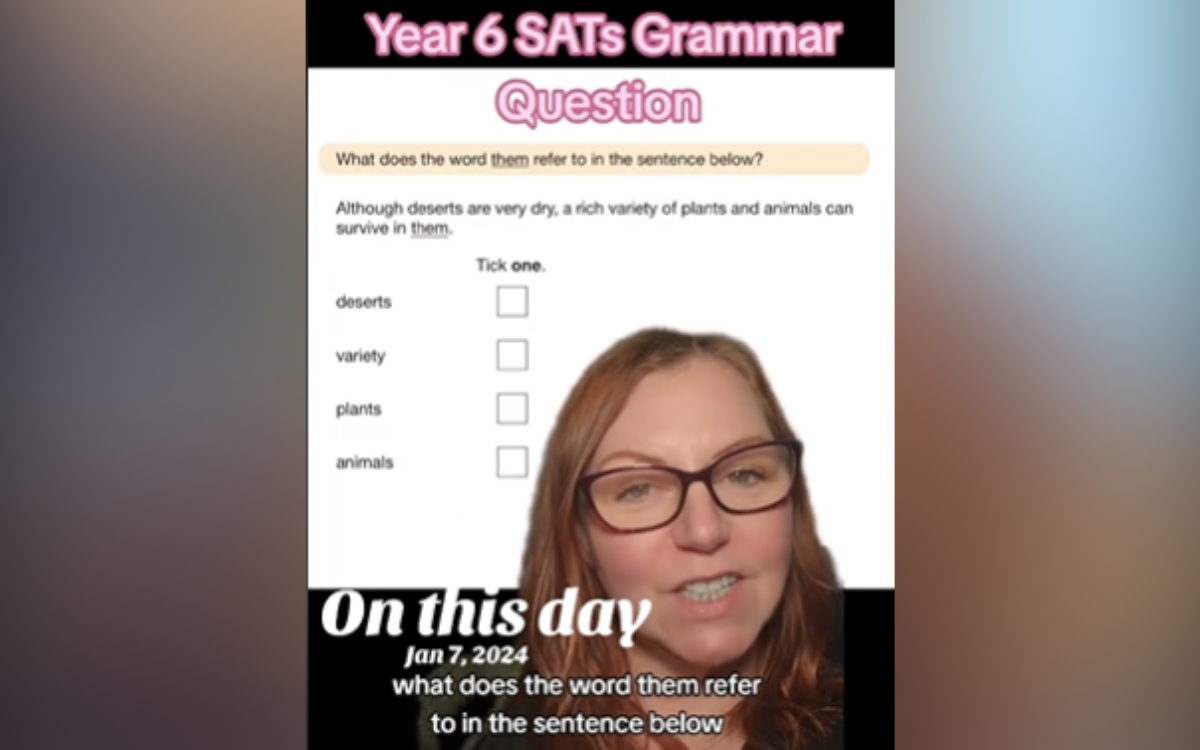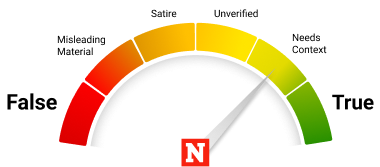A seemingly innocent grammar question aimed at 11-year-old school children has sparked a surprising amount of attention online.
Bad grammar isn't just a minor annoyance, it can actually be bad for you. In 2023, a study published in the Journal of Neurolinguistics saw 41 healthy, English-speaking adults listen to 40 English speech samples. The twist was that half of the samples contained grammatical errors.
While they listened, the subjects' heart rate variability (HRV), which is the time between successive heartbeats, was monitored. The length of time between beats has been found to be more variable when an individual is relaxed.
If it becomes more regular, however, it can indicate an individual is stressed. In this experiment, researchers found that HRV became more regulated among test subjects when they heard grammatical mistakes. Simply put—bad grammar made them feel physically stressed.
It's difficult to know what kind of reaction has been generated among those watching the video Sarah Brownsword, a United Kingdom-based lecturer in primary education at the University of East Anglia, posted to TikTok but it appears to have been a significant one.
Brownsword has made a name for herself on TikTok with videos posted under the username @grammarslammer.
"I train primary teachers and started making videos to help my students with their grammar subject knowledge," she told Newsweek. "I make videos about grammar and language and I think people like the challenge of the ones where they have to get an answer right."
One video and the question it centers on, in particular, appears to have been generating a lot of interest on Brownsword's account as of late. The question, geared towards kids in year six in the U.K. education system, who will be around the ages of 10 and 11, asks: "What does the word them refer to in the sentence below?
The sentence is: "Although deserts are very dry, a rich variety of plants and animals can survive in them." The question then lists four possible answers: deserts, variety, plants and animals.
On the face of it, the answer appears to be an obvious one: deserts. But, for reasons unknown, the question ended up generating the same unusual response again and again in the comments section accompanying the video.
"The fact that I read it as desserts doesn't bode well for me," one TikTok user wrote.
A second user wrote: "I READ IT AS DESSERTS AND NOW I WANT A DESSERT."
"I failed as I read it as dessert," a third posted.
And a fourth user wrote: "for a moment there I was thinking what do plants and animals have in common with desserts and why are they dry hahaha."
Plenty of people appeared to immediately get the answer, of course. "This is common sense I fear," one TikTok user wrote, with another added: "I fear for anyone who gets this wrong."

However, Brownsword has a pretty good idea as to why the video has proven such a hit.
"These grammar question videos are always popular but I think the desert/dessert mix up people are making in this one is why people are sharing it," she said. "I think people misread it and the sentence sounds funny if you think it says desserts rather than deserts." At the time of writing, the video, which was posted earlier this week, has been watched over 315,000 times.
Though the desert/desserts confusion has undoubtedly been the driving force behind the video's popularity, she also thinks it's been driven by people eager to correct those making that leap.
"With the grammar question videos I get a real split of people saying the questions are impossible and those who say they're really easy," she said.
Ultimately, she thinks the popularity of these grammar videos may come down to one simple thing. As Brownsword puts it: "People love to talk about and argue about language use."




















 English (US) ·
English (US) ·